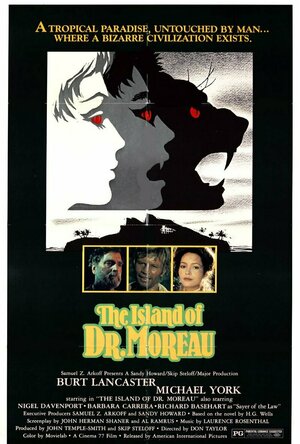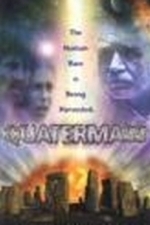Search
Awix (3310 KP) rated Passengers (2016) in Movies
Jan 21, 2019
Who needs moral culpability when you have J-Law in her pants?
Contains spoilers, click to show
Good-looking SF movie that goes to prove that all you need is two good-looking charismatic stars and a very misleading ad campaign and people will flock to see your film, no matter how creepy and rapey the story actually is. Male passenger (Pratt) on a long-haul space flight wakes up early due to an accident, finds himself facing the prospect of living out his life alone on the ship (trip will take nearly a century, everyone else is still in hypersleep). He goes a bit mad from isolation, becomes obsessed with a female corpsicle (Lawrence), and decides to wake her up so he will have company even though he is condemning her to the same fate as him. Naturally he neglects to mention his own culpability in all this, even after they get it on.
And people call this a romance?!? A paean to stalking, more like. All the other flaws in Passengers (and there are a few: the premises of the film don't quite hang together, for example) fall away compared to the simple fact that the protagonist does several truly horrible things, for which he is never really held to account. Obligatory shots of Lawrence in a swimsuit/lingerie happen along as well, of course. I'd say it was the usual sort of no-brainer inoffensive tosh, but it really leaves a nasty taste in the mouth.
And people call this a romance?!? A paean to stalking, more like. All the other flaws in Passengers (and there are a few: the premises of the film don't quite hang together, for example) fall away compared to the simple fact that the protagonist does several truly horrible things, for which he is never really held to account. Obligatory shots of Lawrence in a swimsuit/lingerie happen along as well, of course. I'd say it was the usual sort of no-brainer inoffensive tosh, but it really leaves a nasty taste in the mouth.

1992 Deluxe by Princess Nokia
Album Watch
Princess Nokia – aka New York rapper Destiny Frasqueri – has been releasing music via Youtube...
hip-hop
Awix (3310 KP) rated The Island of Dr. Moreau (1977) in Movies
Jun 16, 2020 (Updated Jun 16, 2020)
Interesting if not entirely successful adaptation of H.G. Wells' classic piece of Gothic SF. Michael York get washed up on Burt Lancaster's private island and discovers he's been doing genetic experiments on animals, trying to instil human characteristics into them. Well-mounted, and with decent performances from most of the cast, even if it's never quite as thought-provoking or disturbing as you'd probably like it to be, while most of Barbara Carrera's scenes feel like they've been grafted on from a different film, not entirely comfortably (an attempt at a twist ending involving her character was abandoned when Michael York refused to film it on taste and decency grounds).
The film-makers seem to have noticed the theoretical issues with the plot of the book - the main character has no real agency and is merely an onlooker - and fixed this by introducing a subplot in which Moreau experiments on him, thus setting up a reasonably elegant action-adventury sort of climax complete with happy ending. This does put the film rather at odds with Wells, though, and gets in the way of exploring the book's actual themes - its somewhat problematic subtexts about social control and the different sort of uplift attempted by the British Empire are still there if you look for them, seemingly by accident. Enough of the book's imagery and ideas survive to make this worthwhile viewing and probably the most rewarding adaptation, but really - read the novel as well.
The film-makers seem to have noticed the theoretical issues with the plot of the book - the main character has no real agency and is merely an onlooker - and fixed this by introducing a subplot in which Moreau experiments on him, thus setting up a reasonably elegant action-adventury sort of climax complete with happy ending. This does put the film rather at odds with Wells, though, and gets in the way of exploring the book's actual themes - its somewhat problematic subtexts about social control and the different sort of uplift attempted by the British Empire are still there if you look for them, seemingly by accident. Enough of the book's imagery and ideas survive to make this worthwhile viewing and probably the most rewarding adaptation, but really - read the novel as well.
TB
The Best Science Fiction and Fantasy of the Year, Volume Eleven
Book
The 11th volume in this much lauded series with incisive and genre-defining stories chosen my...
Awix (3310 KP) rated The Quatermass Conclusion (1979) in Movies
Feb 10, 2018 (Updated Feb 10, 2018)
We're all doomed, I tell you, DOOMED!
Big-screen version of Nigel Kneale's ultra-depressing finale to his series of Quatermass TV shows and films. Kneale was only in his fifties when he wrote this, which is odd because it feels very much like an old man's wail of anguish when faced with a world he no longer feels he belongs to or even recognises. Set in the near future - one very much informed by the social unrest and generational tensions that were present in the UK when it was made - this is the story of a collapsing civilisation presented with a new threat: a hostile alien presence, which originally visited Earth five thousand years ago, has returned, basically intent on chowing down on young people (this was clearly an influence on the later Torchwood series Children of Earth). Ageing boffin Bernard Quatermass must find a solution, if he can.
It's not uncommon for SF to be not so much about predicting the future as complaining about the present, but what makes this version of Quatermass unusual is it's told primarily from the perspective of old people - there are a couple of younger sympathetic characters, but even they are thirty-five-going-on-sixty in their attitudes, and most of the younger people are depicted as either feckless wasters or violent psychopaths. (The generation gap is explained by alien influences being at work.)
Reasonably lavish, bearing in mind its TV origins, and quite successful on its own terms - but as its main intention seems to be to drive the viewer to despair, it's not especially easy to like.
It's not uncommon for SF to be not so much about predicting the future as complaining about the present, but what makes this version of Quatermass unusual is it's told primarily from the perspective of old people - there are a couple of younger sympathetic characters, but even they are thirty-five-going-on-sixty in their attitudes, and most of the younger people are depicted as either feckless wasters or violent psychopaths. (The generation gap is explained by alien influences being at work.)
Reasonably lavish, bearing in mind its TV origins, and quite successful on its own terms - but as its main intention seems to be to drive the viewer to despair, it's not especially easy to like.
Cynthia Armistead (17 KP) rated Suite 606 (In Death, #27.5) in Books
Mar 1, 2018
I only read the story by [a:J.D. Robb|17065|J.D. Robb|http://photo.goodreads.com/authors/1202524651p2/17065.jpg]. I glanced at the other three, but they're primarily romance stories, which do NOT interest me.
The whole point of these little anthologies is to introduce readers who enjoy an established author's work to other, similar authors, right?
I know that J.D. Robb is a pen name for [a:Nora Roberts|11139|Mary Shelley|http://photo.goodreads.com/authors/1205347203p2/11139.jpg]. I know that the stories she publishes as NR are romances. If I saw an anthology anchored by an NR story, I'd expect it to be full of romances.
However, I don't read the NR stuff. I only read her JDR books, which have a little romantic spice about the main character, Eve Dallas, and her husband Roarke, with occasional glimpses into Eve's partner, Peabody's, relationship with her guy, McNab. That's it, though. Neither of those sets of relationships are the focal point of the plots. The mystery/crime is the main thing, and while they're set in the future with the advantages of technology we don't yet have, they're essentially police procedurals. (I don't consider them SF, quite, because all the tech seems to be extrapolated from what we have now, and quite plausible. And, of course, the tech isn't the point of the stories, either.)
So why not put similar stories in an anthology anchored by a JDR story? Why why why? Misleading and disappointing readers is NOT the way to garner any positive buzz for the lesser-known authors, and the backlash can lead to less enthusiasm from established readers (like me) for the established author's work.
The whole point of these little anthologies is to introduce readers who enjoy an established author's work to other, similar authors, right?
I know that J.D. Robb is a pen name for [a:Nora Roberts|11139|Mary Shelley|http://photo.goodreads.com/authors/1205347203p2/11139.jpg]. I know that the stories she publishes as NR are romances. If I saw an anthology anchored by an NR story, I'd expect it to be full of romances.
However, I don't read the NR stuff. I only read her JDR books, which have a little romantic spice about the main character, Eve Dallas, and her husband Roarke, with occasional glimpses into Eve's partner, Peabody's, relationship with her guy, McNab. That's it, though. Neither of those sets of relationships are the focal point of the plots. The mystery/crime is the main thing, and while they're set in the future with the advantages of technology we don't yet have, they're essentially police procedurals. (I don't consider them SF, quite, because all the tech seems to be extrapolated from what we have now, and quite plausible. And, of course, the tech isn't the point of the stories, either.)
So why not put similar stories in an anthology anchored by a JDR story? Why why why? Misleading and disappointing readers is NOT the way to garner any positive buzz for the lesser-known authors, and the backlash can lead to less enthusiasm from established readers (like me) for the established author's work.
Awix (3310 KP) rated Sapphire and Steel in TV
Apr 2, 2020
It would be easy to mark Sapphire and Steel down just for being so obviously a low-budget, studio-bound TV show, but this would be to overlook just what a startlingly distinctive and uncompromising piece of... well, entertainment doesn't quite cover it, for the programme seemingly sets out to baffle the viewer as well as divert them. It is notionally a fantasy, but elements of SF and horror also appear. Stories mostly take place in out-of-the-way places like remote cottages, junk shops, the tops of tower blocks, disused railway stations and so on. The structure of time seems to be weaker in these places and when it breaks down or is interfered with, operatives such as Sapphire and Steel and their occasional colleagues appear to resolve the situation.
This is pretty much all we are told about the format of the series - who and what Sapphire and Steel are, what the limits of their powers are, and who they answer to, is never made clear (even the nature of their mission seems to change from story to story). The cryptic, often surreal nature of the series is one of its main attractions, along with the chemistry between the stars (occasional ally Silver, played by David Collings, is also a joy to watch).
The bleak and eerie atmosphere of the stories is consistently impressive, as is the clear understanding of visual style possessed by the makers: stories are filled with startling images and symbols, occasionally drawn from the visual arts (one adversary is basically a Magritte painting brought to life). Always memorable, and never more so than in its final episodes: the sheer unexpected bizarreness of Sapphire and Steel's fate makes it all the more shocking and downbeat. A unique and very distinctive series.
This is pretty much all we are told about the format of the series - who and what Sapphire and Steel are, what the limits of their powers are, and who they answer to, is never made clear (even the nature of their mission seems to change from story to story). The cryptic, often surreal nature of the series is one of its main attractions, along with the chemistry between the stars (occasional ally Silver, played by David Collings, is also a joy to watch).
The bleak and eerie atmosphere of the stories is consistently impressive, as is the clear understanding of visual style possessed by the makers: stories are filled with startling images and symbols, occasionally drawn from the visual arts (one adversary is basically a Magritte painting brought to life). Always memorable, and never more so than in its final episodes: the sheer unexpected bizarreness of Sapphire and Steel's fate makes it all the more shocking and downbeat. A unique and very distinctive series.

J.J. Abrams: A Study in Genius
Book
J.J. Abrams is one of the most successful director-writer-producers working in Hollywood, and now...






